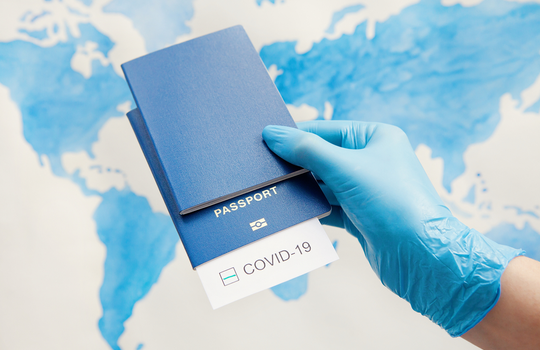
The Federal Government has urged Australians to link their government digital identities, in particular their myGov and Medicare accounts, to support the rollout of its Covid-19 “vaccination passport” scheme.
It is hoped the scheme will help ease restrictions on domestic and overseas travel for Australians and avoid mandatory quarantining.
The Australian Immunisation Register (AIR) will hold the immunisation passport, which will then be added to citizens’ myGov accounts.
The immunisation history receipt will be accessible via phone or hard copy print out, made available through the Medicare Online and myGov service platforms, once services are linked, as well as the Express Plus Medicare mobile app.
The myGov platform requires separate online agency accounts – for instance, Medicare and the Australian Tax Office – to be individually linked in order to access these services through the one-stop-shop myGov platform.
With an expected surge in new registrations and sharing of sensitive medical records required under the new vaccination passport scheme, Minister for Government Services, Stuart Robert, noted in early February that the AIR had been beefed up with “state-of-the-art cybersecurity”.
The Federal Government also announced late last year that it was conducting a review of the Register to ensure “technical capacity to fulfil the key monitoring role”, according to the Australian Covid-19 Vaccination Policy, which outlines a requirement for the AIR to monitor immunisation coverage and administration across Australia.
Robert cited “a range of digital applications” that could be used through international travel authorities to facilitate a globally recognised vaccination certification system, including IBM, Clear, and travel health app, CommonPass.
AIR was established in 1996 as The Australian Childhood Immunisation Register (ACIR); in 2016, it was expanded to include immunisation records for all Australians.
New legislation passed in recent weeks requires all healthcare providers to supply details of immunisations to the Register. Previously, reporting of immunisations was at the discretion of providers.
The move to create an Australian vaccination passport follows a similar push in Denmark and Sweden.
Thomas Bustrup, from the confederation of Danish Industry, said he envisaged the Danish vaccine certification being made available as a phone app.
The Danish government says it will have an online registry available by the end of February, with its vaccine passport system expected to be ready later in the year.
Sweden said it will have its system up and running by the middle of this year.
Both countries have hinted that such a system could be expanded to be deployed at, say, sporting events in the future.
These “vaccination passports” are expected to ease restrictions for travellers undertaking both domestic and international travel, particularly to countries where proof of vaccination may become mandatory.
While several countries, including the US, Italy, Spain and Greece, have indicated that they are considering or are already developing a similar vaccine passport, the UK has thus far refused to consider such a scheme.
Nadhim Zahawi, the UK’s vaccines minister, told the BBC that the UK Government had “no plans” to introduce vaccine passports, calling them “discriminatory” and instead suggesting that doctors can supply proof of vaccination.
“I think the right thing to do is make sure people come forward and be vaccinated because they want to, rather than it being made in some way mandatory through a passport,” Zahawi said.
Meanwhile, the World Health Organisation (WHO) is developing a framework for an international standard for coronavirus vaccination certificates.
However, the WHO in January recommended that countries should not yet enforce proof of vaccination to enable travel, as the vaccination is not widely available in some countries and the impacts of the vaccinations on reducing transmission are not yet known.
While clinicians and epidemiologists remain cautious due to the limited data currently available to measure the wide-scale efficacy of the vaccine, vaccination passports have also faced scrutiny due to privacy concerns.
The head of the UK’s data privacy watchdog, Elizabeth Denham, admitted she could see the benefits of a vaccination passport but expressed concern over its being made mandatory as well as the risks of sharing health data.
She was also concerned such a scheme could create a “two-tier society” where those who have been immunised have greater freedoms than those who do not.
Gloria Guevara, president and chief executive of The World Travel and Tourism Council (WTTC) said that a system that only allowed travel through the use of a vaccine passport will mean that certain groups would be discriminated against, “particularly those in less developed countries, or those in less vulnerable age groups”.
A recent survey by the Federal Government found that only two-thirds of Australians have indicated that they will “definitely” get the vaccine.
As many as a quarter of those surveyed indicated that they were “unsure” about whether or not they would get a vaccination, with 9 per cent indicating they will “definitely not” get the jab.
Minister Robert has said that vaccinations and “the widespread use of assured certificates” will be required for international borders to open up again.
Prime Minister Scott Morrison says he is discussing a “vaccine passport system” with other nations while the system rolls out here in Australia.





